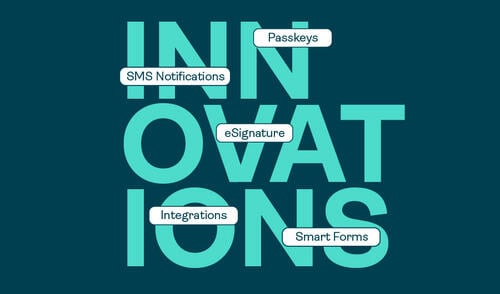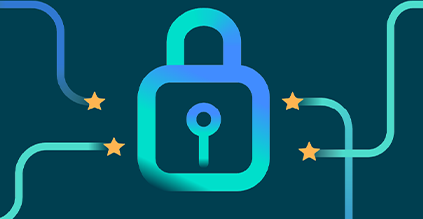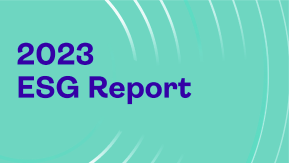Digitalization and New Technologies in Mexico's Development

What is digitization?
The digitization process is one of the steps involved in the application of technology to all aspects of life and human society. This stage of technological and economic evolution has been called an Industry 4.0 Fourth Industrial Revolution. At this stage, digital formatting is crucial, as well as the digitization of companies and a complete digital transformation.
The digitization of companies does not only involve the digitization of documents. It goes far beyond that, extending to being able to easily search old data, physical files and documents in real time. Ideally, it involves the renewal of processes, products, and even business models. This entails a change of mindset and sometimes a restructuring of the company.
Organizational culture is one of the main issues to consider when implementing digital tools within a company. And it is not just a matter of the collective mindset of the culture, but also of the mentality of individuals. This mindset should be one of openness, change, and adaptability. Getting everyone on board is a challenge, especially for organizations that have been carrying out their processes in a certain way for a long time. However, the benefits of digitization are many, from access to more information and more effective communication, to a smaller impact on the environment.
This introduction to new technologies and digitization has led to different discussions around the world. In general, the technologies are very new and they have not been developed to their full potential, so there are still some concerns regarding cybersecurity and loss of digital data. However, much progress is being made in research, digital technologies and long-term risk minimization.
Technologies in focus
The development of new technologies for digitization and digital transformation has been very widely spread and taken place in many different sectors. Blockchain, augmented reality, the Cloud, Big Data, social networks, the Internet of things, electronic signatures, digital identity, hybrid human-digital experiences, information technology, mobile platforms, machine learning, machine-to-machine communication, cryptocurrencies, etc. are just some of the new technologies and digital services that have emerged recently.
Each business or organization is different, and therefore it must be analyzed according to its individual needs, considering which technology can be useful to optimize their processes and achieve a competitive advantage. Some technologies nowadays are already a reality and are very useful for the digitization of companies:
- Electronic signatures. There is a wide range of electronic signatures, ranging from digital signatures, including completely handwritten signatures, to the e-signature, a functionality used by the Government of Mexico. Electronic signatures automate workflows, improving customer experiences. They eliminate the costs associated with processes involving physical documents.
- Cloud Services. Over time, computers come with less and less internal memory. Intuitively, you might think that memory would increase, however, thanks to cloud services, there is almost unlimited storage available, as well as better and faster access to files and instant software updates, but above all, more access to remote work capabilities. Cloud services are undoubtedly one of the most useful current tools for any organization.
- Social networks. Although not a new technology as such, social networks are relatively recent, and their growth has been exponential. They are an indispensable communication tool for work, not to mention the impact they have had on the marketing of products and services. They keep society connected, and are set to evolve soon into a metaverse that revolutionizes communication and interaction between people.
- Internet of things. This technology is already a daily reality. Not only on mobile or smart home devices, but also when paying with a credit card at a store, controlling a printer from a cell phone, running with a pedometer on your wrist, or finding lost children at a theme park using their tracker bracelets. More and more devices will seek to collect more data, especially when that is their business model.
- Machine Learning, Big Data, and Artificial Intelligence. The main objective of these technologies is process optimization, but they also provide organizations with the data they need to make faster and better decisions. Responsiveness becomes instant for some processes, and overall performance is improved. They also support automation, since machines and algorithms learn from what they do. Gradually, they will be able to do it automatically and make more precise decisions about how to classify the type of information collected.
From the First Industrial Revolution to digitization, there have been concerns that machines might one day substitute humans. However, so far, this has not been the case. Machines do certain jobs faster than humans, but that in itself creates new jobs for humans.
Futurist Sinead Bovell has described the human skills that the future of work will require and considers soft skills to be most important, that is, social skills that are difficult to quantify. Some of them are: adaptability, critical thinking, creative intelligence and creativity, teamwork, communication, social intelligence, empathy, problem solving, re-learning (learning a new approach and unlearning the old one), and time management, among others.
Digitization and digital transformation in Mexico
Digitization in Mexico still has a long way to go for companies, but that does not mean that there is no interest, both in Mexico and the region in general. Several Latin American countries are also participating in this process and increasingly implementing new technologies in their organizations.
According to the Forbes portal, 81% of companies in Mexico have already started some form of digital transformation. These numbers grew during the pandemic and indicated that efforts are underway to implement greater digitization, even while knowing there is a chance of failure.
This failure rate is primarily attributed to entrepreneurs' lack of understanding of the digital transformation process. It’s important to realize that that digitization is an ongoing process that will never be fully completed. It must be updated continuously based on the necessary technologies.
How to get ahead in digitization
The best way to stay ahead of new technologies is to learn and be well informed about trends. In the case of technology, its functionality is what must be proven, and it is important to understand if it works for a certain industry or organization. From the World Economic Forum to presentations by technology companies such as SpaceX, Facebook, Apple, or Microsoft, you can get an idea of what is coming in the next few years and start implementing it now if it is possible.
A very recent example is the Metaverse. Although it has not been developed, Facebook is already building a metaverse which will support new kinds of interactions, to the point that it is not clear what it will look like. Although it does not exist as such yet, it can already be seen in some industries, mainly in gaming, where you can get a sense of what a universe like this would be like and how it would work. It is an opportunity for organizations and companies to anticipate if a particular technology could work, be it to add to the experience of associates or customers, as well as for legislators to begin to understand the implications of it being used in an organization.
OneSpan is a company that provides electronic signatures digital identity verification and authentication solutions, fraud prevention, and more. These are not only supported by new technologies, but are also products and capabilities that can help companies to optimize their own processes in order to improve the customer and employee experience, save them time and costs, and help them provide better services and products. These technologies will become dominant in the coming years and will help companies and organizations reach their full potential in terms of their digital processes.
Regardless of the type or size of an organization, it is important to find a way to integrate digitization and digital transformation in Mexico. Opportunities for transformation and collaboration are always available.
The information on this site is for informational purposes only and does not constitute legal advice. We recommend that you seek independent professional advice. OneSpan does not accept liability for the contents of these materials.










